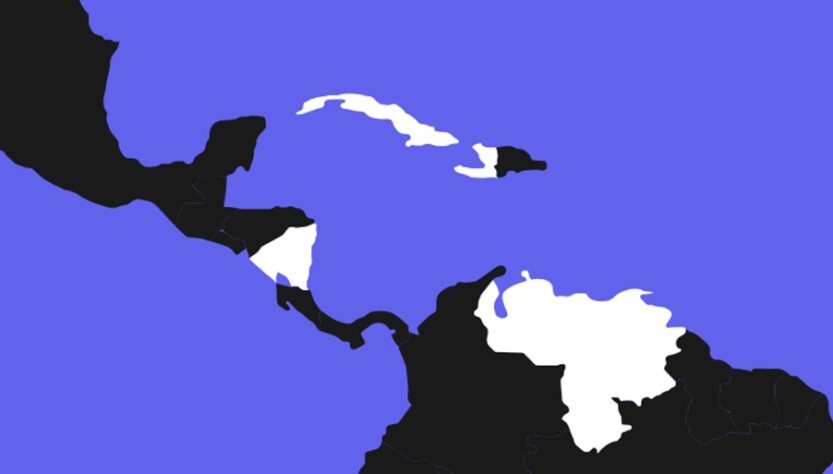On March 8, a federal district court in Texas dismissed a challenge to a parole program set up by the Biden administration to allow 30,000 Cubans, Haitians, Nicaraguans, and Venezuelans to enter the United States legally each month, known as the CHNV parole program, allowing the program to stay in place. Judge Drew Tipton of the Southern District of Texas dismissed the claims brought by several states challenging the legality of the CHNV parole program. Judge Tipton held that the state of Texas, the lead plaintiff in the lawsuit, did not show it would be harmed by the CHNV policy because the program has successfully reduced overall border crossings, and therefore Texas lacked standing to bring the lawsuit.
The dismissal means that nationals from the four impacted nations can continue to seek parole into the United States through the CHNV process.
Established in January 2023, the CHNV parole program allows beneficiaries from the four identified countries to enter the United States for a two-year period by granting them humanitarian parole. To qualify for the CHNV benefits, applicants must have sponsors in the United States who file paperwork stating they will financially support the CHNV beneficiary if needed. Applicants also need to use the CBP One mobile phone app from abroad to submit information that will be used to conduct background checks. Once the travel authorization is approved, the beneficiaries must pay for their own travel into U.S. airports where U.S. Customs and Border Protection agents make a final determination on parole.
While beneficial to thousands who have entered the country through the CHNV program, the program has come at a cost for others. The CHNV program was the product of the Biden administration’s agreement with Mexico, which allowed immigration officials to return nationals from the four specified countries to Mexico if they were apprehended at the border. In exchange, the United States would permit 30,000 people from Cuba, Haiti, Nicaragua, and Venezuela to enter the United States through the humanitarian parole process. This agreement came at a time when the number of people apprehended at the southern border from these four countries was at an all-time high.
Additionally, access to the CBP One app is critical to the process but may not be accessible to everyone. People who lack access to a smartphone, and those living in geographic regions that lack stable internet, may be unable to access the app. Some CBP One users have reported issues with the app’s facial recognition, or “liveness check” technology.
Texas, along with 20 other states, filed a lawsuit challenging the legality of the program. The states claimed the program violated the parole authority granted by Congress to the executive branch.
But for the Court to consider the states’ arguments on the CHNV program’s legality, the plaintiff states had to prove they had standing to bring the lawsuit in the first place. A plaintiff who seeks a federal court’s intervention in a case must show they have been injured by the defendant’s conduct, and that the court’s decision will fix their injury. In this case, Texas argued that the CHNV parole program would increase the raw number of individuals from the subject countries who live in Texas, which would increase the amount of money the state pays to provide healthcare, education, incarceration, and driver’s licenses to beneficiaries.
The Court, however, disagreed, stating that to determine whether injury exists the raw numbers need to be looked at in context rather than in a vacuum. Judge Tipton’s decision to reject the states’ standing relied on the CHNV program’s effectiveness at reducing the overall numbers of Cubans, Haitians, Nicaraguans, and Venezuelans that the United States admitted prior to CHNV program’s implementation.
The Court noted that prior to the CHNV program, the U.S. Department of Homeland Security could not remove the vast majority of nationals from these four countries. They were therefore released into the country to wait for removal proceedings. The government claimed that the CHNV program reduced the overall number of nationals migrating across the southern border from Cuba, Haiti, Nicaragua, and Venezuela.
The Court used this fact to hold Texas was not injured by the CHNV program. The decision suggests that Texas may actually benefit from the CHNV program due to the lower number of migrants from these countries who live in Texas had the program not been implemented.
The decision is important because it allows nationals from the four countries to breathe a sigh of relief given that administration of CHNV program may continue and that their parole will not be terminated because of this Court decision. Continuation of the program allows family members and community members to continue to sponsor individuals for humanitarian parole from these four countries.
It is worth remembering that the four countries in the program face significant political crises, leading to mass migration throughout the western hemisphere. Conditions in Haiti, for example, have deteriorated into chaos as government institutions succumbed to gangs. The CHNV program, despite its flaws, is a key pathway for vulnerable populations to seek protection in the United States.
Procedurally, the case could make its way back into court because Judge Tipton did not reach the issue of whether the program is legal. The states could appeal the court’s decision to the Fifth Circuit Court of Appeals, but Judge Tipton’s decision borrowed from prior Fifth Circuit rulings on standing, where the Fifth Circuit, ironically, held Texas had standing to challenge the legality of the Deferred Action for Childhood Arrivals program and the Deferred Action for Parents of Americans program. The plaintiff states could also conjure up a different articulation of their injury, which would force the district court to reconsider the standing argument based on these new facts. Either of these approaches could take a long time.
As such, the CHNV program survives for the foreseeable future. The Biden administration must now do all it can to make sure that the application process is accessible and equitable for all those who need it.

